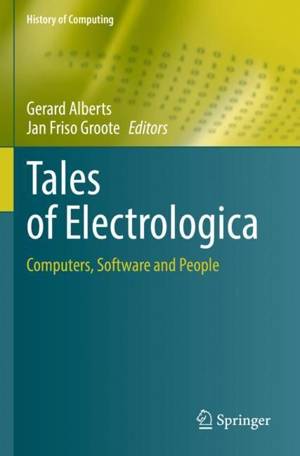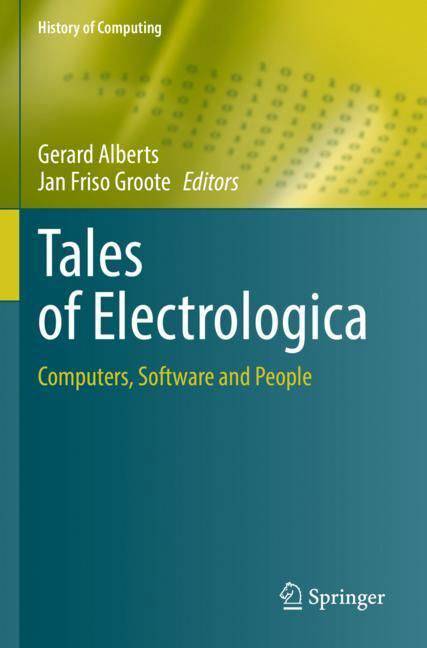
- Retrait gratuit dans votre magasin Club
- 7.000.000 titres dans notre catalogue
- Payer en toute sécurité
- Toujours un magasin près de chez vous
- Retrait gratuit dans votre magasin Club
- 7.000.0000 titres dans notre catalogue
- Payer en toute sécurité
- Toujours un magasin près de chez vous
Description
Manufacturing computers in series was quite a feat in the 1950s. As mathematical as it gets, the machines discussed here were called X1 and X8.
The industrial achievement combined with the background in a mathematical research center made the company Electrologica a legend in Dutch computing. The tales in this book are told by those who have a right to tell. Highly engaged professionals take readers back to their pioneering work with the machines and in retrospect unveil some of the values, which went without saying in the 1960s.
The reflections of first hand experiences combine well with the second thoughts of historical research into archival sources. Historians Huub de Beer and Gerard Alberts offer a view into the boardrooms of the local enterprise Electrologica, and of the electronics multinational Philips. Where pioneers and historians meet in an inspiring dialogue, the reader gains a view on the often implicit decisions constituting the field.
Fortuitously, a copy of the X8 was retrieved from Kiel, Germany, and put on display at Rijksmuseum Boerhaave, Leiden. Sparked by the very material presence of an X8, the present book takes stock of the state of historiography of Electrologica.
Gerard Alberts is an associate professor in History of Digital Cultures, retired from the University of Amsterdam. Jan Friso Groote is a full professor of Formal Methods at the Eindhoven University of Technology.
Spécifications
Parties prenantes
- Editeur:
Contenu
- Nombre de pages :
- 201
- Langue:
- Anglais
- Collection :
Caractéristiques
- EAN:
- 9783031130359
- Date de parution :
- 06-01-24
- Format:
- Livre broché
- Format numérique:
- Trade paperback (VS)
- Dimensions :
- 156 mm x 234 mm
- Poids :
- 303 g

Les avis
Nous publions uniquement les avis qui respectent les conditions requises. Consultez nos conditions pour les avis.





